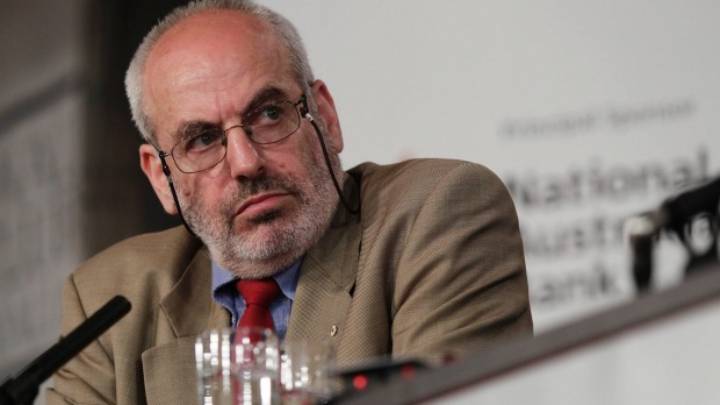As the ACT Moves to Fixed-Site Pill Testing, NSW Police Minister Doesn’t Get It

NSW police minister David Elliott took the opportunity of Sydney opening up from its extended lockdown to strengthen the understanding that he has no idea about the evidence behind the harm reduction intervention known as pill testing.
Elliott told Sky News on 12 October that pill testing sends “a terrible message to our young people – that illicit drugs are anything but dangerous”.
And the minister added that testing drugs “could be offering some sort of false sense of security”, which would mean “kids can just go ahead and pop them”.
However, just going ahead and popping drugs, like MDMA, is exactly what’s happening on a daily basis nationwide. And over a century of drug prohibition hasn’t prevented this.
Rather, the drug war has facilitated the growth of a gigantic black market with a proliferation of unregulated backyard drugs on offer.
As former Australia Federal Police commissioner Mick Palmer has outlined, in European jurisdictions where pill testing has been available since the 90s, it’s supported by local police, and it has been shown to reduce drug intake.
Elliott’s recent outburst was sparked by news that the ACT government has greenlighted a six month trial of a fixed-site pill testing service.
And according to the nation’s leading drug law reform expert, it’s the capital territory – not the premier state – that’s in line with the globe’s seismic shift on drug use.
Avoidable deaths pending
“Politicians often lazily use the hackneyed phrase ‘sends the wrong message’ when they just want to get rid of a point of view as quickly as possible but can’t think of a convincing objection,” said Harm Reduction Australia ambassador Dr Alex Wodak.
“Police minister Peter Elliott did not quote rigorous research to identify what young people actually think about pill testing,” he told Sydney Criminal Lawyers. “He just assumed that a 20-year-old would have exactly the same perspective as a middle-aged, powerful government minister.”

As NSW moves out of lockdown with a highly vaccinated population, the festival industry will reopen, and recommence putting on the events that are the frontline of the pill testing-drug checking debate.
The last full festival season in this state – the summer of 2018-19 – saw five young Australians die in drug-related circumstances.
And like the police minister of late, the former Berejiklian government took a “just say no” approach as this crisis unfolded. It refused to contemplate pill testing. It enacted increasingly punitive and ineffective drug laws. And it even appeared that it might shut down the entire festival industry.
“The fact that drugs made available at youth music events in Australia – apart from the ACT – are not tested means that suppliers can offload inferior quality pills with impunity,” Wodak continued, adding that drug suppliers might be more discriminating of stock if it was being tested for quality.
“The police minister has just made a political judgement, rather than considering and weighing up the available evidence.”
A lifesaving intervention
Drug checking was officially sanctioned in the Netherlands with the establishment of the Drugs Information and Monitoring System (DIMS) in 1992.
Today, jurisdictions throughout Europe permit the lifesaving health intervention, with the EU having produced pill testing best practice guidelines.
As witnessed at the two legal pill testing trials that have taken place in Canberra at the 2018 and 2019 Groovin the Moo events, festivalgoers are able to attend a drug checking service, without fear of police reproach, and have their drugs tested by trained medics using laboratory equipment.
This means that the types of backyard drugs that thousands of Australians consume weekly, are able to be tested for toxicity, and those in possession of them can then make an informed decision as to whether to ingest them.
This system also permits the issuing of warnings about dangerous batches to the public, which has been a key function of DIMS.
Carried out by Pill Testing Australia, the two trials in the ACT resulted in potentially deadly substances being detected, which led the owners of those drugs to dispose of them in the amnesty bins provided by the service, and these people were therefore saved a potential overdose incident.
A permanent fixture
The just released 2021-22 ACT budget included funding for a six month trial of a fixed-site pill testing service in Canberra.
As is the case in Europe, these permanent drug checking facilities permit not only festivalgoers but people who use drugs in the community to check the illicit substances in their possession prior to use.
This is “very significant”, said Wodak. “The ACT government is very committed to the harm reduction component of harm minimisation, which has been Australia’s official national drug policy since 1985”.
A veteran harm reduction advocate, who instigated the rollout of needle and syringe programs nationally, Wodak adds that this commitment in Canberra is reinforced by the 2020 legalisation of personal cannabis use, as well as the current legitimate consideration of drug decriminalisation laws.
The doctor further underscores the importance of making drug checking services available beyond the limits of “youth music events”. “Australia’s drug overdose death rate has been edging up for most of this century and is alarmingly now almost as high as it was a quarter century ago.”
The Pennington Institute outlines that the unintentional drug-induced death rate in this country rose by 3 percent annually between the years 2001 and 2018. And these deaths have outnumbered the road toll since 2014, yet no attention is being paid to them.
The institute puts the unintentional drug-induced death rate for 2019 at 1,644 people.
Wodak warns that due to the contaminating of illegal drug supplies with the prone-to-be-lethal opioid fentanyl there has been a recent acceleration in drug overdose deaths in the US, the UK and Canada.
Ninety three thousand people died of a drug overdose in the States last year. Warnings of fentanyl laced drugs doing the rounds in Sydney have been rife over the extended lockdown. And Wodak advises that a situation like that in the US would translate to 7,000 deaths a year in this country.
“Fentanyl is already present in Australian drug supplies but, fortunately, not as prevalent as in the US,” the doctor explained. “Making drug testing available for people using illicit drugs – whether or not they are going to attend a youth music event – could save many more lives.”
Elliott take heed
At the same time the police minister was decrying pill testing, Dan Howard, the commissioner who produced the landmark February 2020 Report of the Special Commission of Inquiry into the Drug Ice, called on Elliott’s new boss, NSW premier Dominic Perrottet, to act upon his recommendations.
In his opinion piece in the Herald, Howard states that it’s high time the government acted upon the 109 recommendations made by the inquiry, which cost $10 million of public money.
A key recommendation is to decriminalise the personal possession and use of all illicit substances.
The Liberal Nationals government was quick to release an interim response, in which it stated it will not consider introducing pill testing, eradicating life-threatening drug dog use, establishing a new medically supervised injecting centre, or rollout needle and syringe exchanges into prison settings.
“It is understandable that the government was preoccupied with the COVID pandemic during much of this period,” said Wodak. “But to fail to respond to 104 recommendations in all that time suggests that the health, social and economic costs of drugs and drug policy are of little concern.”
The drug law reformer made clear that as the NSW Coalition continues to refuse to open its mind to the “abject failure of drug prohibition”, other governments around the globe have understood the drug war is coming to an end and are reforming their policies to reflect this.
Nineteen US states have now legalised recreational cannabis use, as has Washington DC. Thirty seven US states have legalised the use of medicinal cannabis. Oregon has decriminalised all drugs. And the entire nation of Canada has a legalised and regulated cannabis market.
“Senator Chuck Schumer – the third most powerful politician in the US system – has made it clear that federal reform of recreational cannabis is long overdue because the current system is so unjust and that has been clear for such a long time,” Dr Wodak concluded.
“When US federal recreational cannabis laws are reformed, a powerful signal will be sent around the world and the pace of drug law reform will accelerate globally.”







